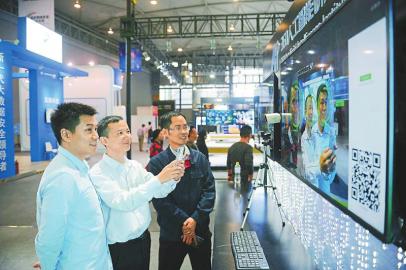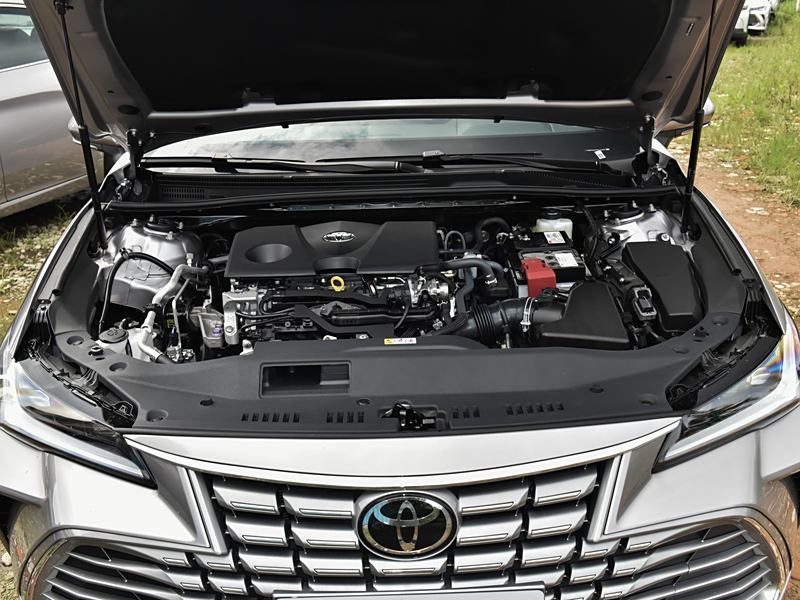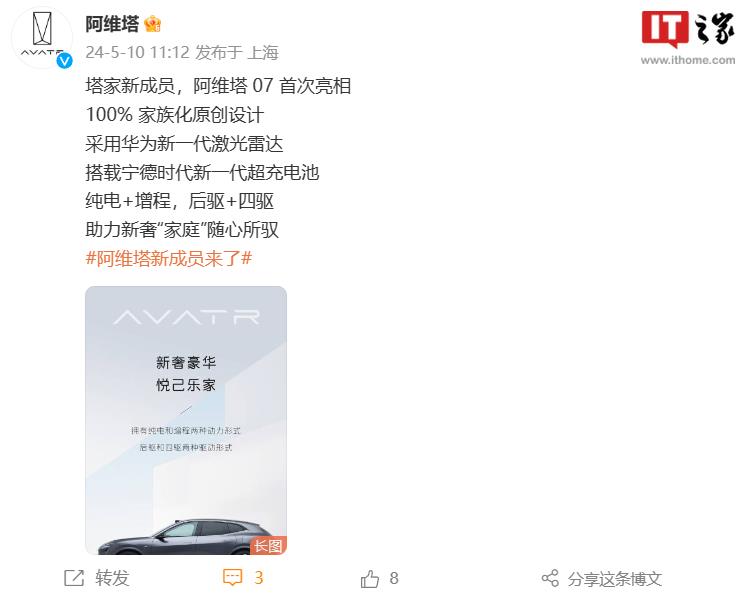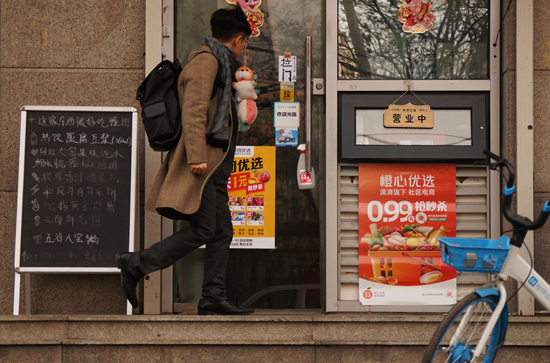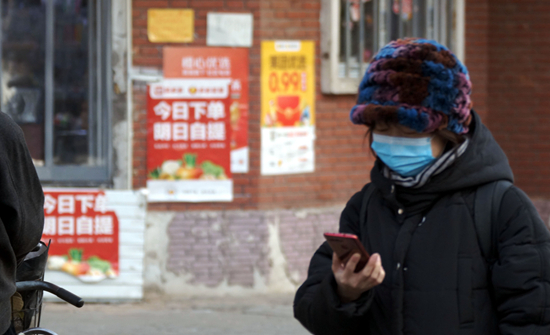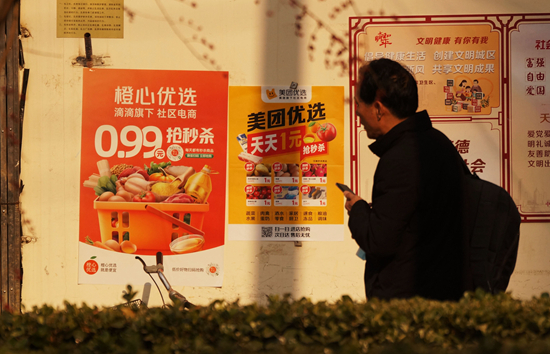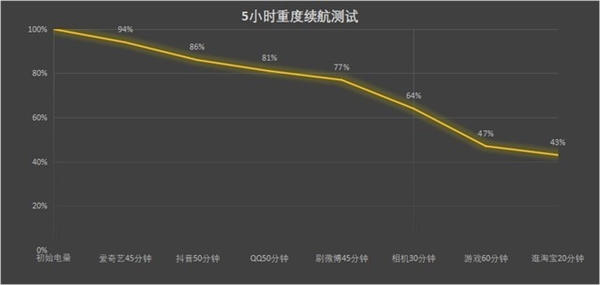Xinhua News Agency, Beijing, October 17th
People’s Republic of China (PRC) Biosafety Law
(Adopted at the 22nd meeting of the 13th the NPC Standing Committee on October 17th, 2020)
catalogue
Chapter I General Provisions
Chapter II Biosafety Risk Prevention and Control System
Chapter III Prevention and Control of Major New Outbreaks of Infectious Diseases and Animal and Plant Epidemic Situations
Chapter IV Safety of Biotechnology Research, Development and Application
Chapter V Biological Safety of Pathogenic Microorganism Laboratory
Chapter VI Human Genetic Resources and Biological Resources Security
Chapter VII Prevention of Biological Terror and Biological Weapons Threat
Chapter VIII Biosafety Capacity Building
Chapter IX Legal Liability
Chapter X Supplementary Provisions
Chapter I General Provisions
Article 1 This Law is formulated in order to safeguard national security, guard against and respond to biosafety risks, safeguard people’s lives and health, protect biological resources and ecological environment, promote the healthy development of biotechnology, promote the building of a community of human destiny, and realize the harmonious coexistence between man and nature.
Article 2 Biosafety as mentioned in this Law means that the State effectively guards against and responds to threats from dangerous biological factors and related factors, biotechnology can develop steadily and healthily, people’s life and health and ecosystems are relatively in a state of no danger and no threat, and the biological field has the ability to safeguard national security and sustainable development.
This Law shall apply to the following activities:
(a) prevention and control of major emerging infectious diseases, animal and plant epidemics;
(2) Research, development and application of biotechnology;
(3) Biosafety management of pathogenic microorganism laboratories;
(4) Safety management of human genetic resources and biological resources;
(5) Preventing the invasion of alien species and protecting biodiversity;
(six) to deal with microbial resistance;
(seven) to guard against biological terrorist attacks and the threat of biological weapons;
(eight) other activities related to biosafety.
Article 3 Biosafety is an important part of national security. Maintaining biological safety should implement the overall national security concept, make overall plans for development and safety, and adhere to the principles of people-oriented, risk prevention, classified management and coordination.
Article 4 Adhere to the Communist Party of China (CPC)’s leadership over the national biosafety work, establish and improve the national biosafety leadership system, strengthen the construction of the national biosafety risk prevention and control and governance system, and improve the national biosafety governance capacity.
Article 5 The State encourages innovation in biotechnology, strengthens the construction of bio-safety infrastructure and bio-technology talents, supports the development of bio-industry, promotes the level of bio-technology through innovation, and enhances the capability of bio-safety.
Article 6 The State strengthens international cooperation in the field of biosafety, fulfills its obligations under international treaties concluded or acceded to by People’s Republic of China (PRC), supports participation in exchange and cooperation in biotechnology and international rescue of biosafety incidents, actively participates in the research and formulation of international rules on biosafety, and promotes the improvement of global biosafety governance.
Article 7 People’s governments at all levels and their relevant departments shall strengthen the publicity and popularization of biosafety laws and regulations and biosafety knowledge, guide grassroots mass autonomous organizations and social organizations to carry out the publicity of biosafety laws and regulations and biosafety knowledge, and promote the promotion of biosafety awareness of the whole society.
Relevant scientific research institutions, medical institutions and other enterprises and institutions should incorporate biosafety laws and regulations and biosafety knowledge into education and training, and strengthen the cultivation of students’ and employees’ biosafety awareness and ethical awareness.
The news media should carry out public welfare publicity of biosafety laws and regulations and biosafety knowledge, supervise biosafety violations by public opinion, and enhance the public’s awareness of social responsibility in maintaining biosafety.
Article 8 No unit or individual may endanger biological safety.
Any unit or individual has the right to report acts endangering biological safety; The department that receives the report shall promptly handle it according to law.
Article 9 The people’s governments at or above the county level and their relevant departments shall commend and reward the units and individuals that have made outstanding contributions in biosafety work in accordance with state regulations.
Chapter II Biosafety Risk Prevention and Control System
Article 10 The central national security leading body shall be responsible for the decision-making and deliberation and coordination of the national biosafety work, study and formulate, guide the implementation of the national biosafety strategy and relevant major principles and policies, coordinate the major issues and important work of the national biosafety, and establish a national biosafety work coordination mechanism.
Provinces, autonomous regions and municipalities directly under the central government shall establish a coordination mechanism for biosafety work, organize, coordinate and urge the promotion of biosafety related work within their respective administrative areas.
Article 11 The national biosafety coordination mechanism is composed of the competent departments of health, agriculture and rural areas, science and technology, diplomacy and other relevant military organs in the State Council, which analyzes and judges the national biosafety situation, organizes, coordinates and urges the promotion of national biosafety related work. The National Biosafety Coordination Mechanism shall set up an office to be responsible for the daily work of the coordination mechanism.
The member units of the National Biosafety Coordination Mechanism and other relevant departments of the State Council are responsible for the biosafety related work according to the division of responsibilities.
Article 12 The national biosafety coordination mechanism shall set up an expert committee to provide decision-making consultation for the national biosafety strategy research, policy formulation and implementation.
Relevant departments in the State Council organized the establishment of biosafety technical advisory expert committees in related fields and industries to provide technical support for biosafety work such as consultation, evaluation and demonstration.
Thirteenth local people’s governments at all levels are responsible for the biological safety work within their respective administrative areas.
The relevant departments of the local people’s governments at or above the county level shall be responsible for biosafety related work according to the division of responsibilities.
Grassroots mass autonomous organizations shall assist local people’s governments and relevant departments to do a good job in biosafety risk prevention and control, emergency response and publicity and education.
The relevant units and individuals shall cooperate with the prevention and control of biosafety risks and emergency response.
Article 14 The State establishes a biological safety risk monitoring and early warning system. The national biosafety coordination mechanism organizes the establishment of a national biosafety risk monitoring and early warning system to improve the ability of biosafety risk identification and analysis.
Article 15 The State shall establish a system for investigation and evaluation of biosafety risks. The national biosafety coordination mechanism shall regularly organize biosafety risk investigation and assessment according to the data and materials of risk monitoring.
In any of the following circumstances, the relevant departments shall promptly carry out biosafety risk investigation and assessment, and take necessary risk prevention and control measures according to law:
(1) It is found that there may be biosafety risks through risk monitoring or receiving reports;
(two) to determine the key areas and key projects of supervision and management, to formulate and adjust the list or list related to biosafety;
(three) the occurrence of major emerging infectious diseases, animal and plant epidemics and other events that endanger biological safety;
(four) other circumstances that need to be investigated and evaluated.
Article 16 The State shall establish a system for sharing biosafety information. The national biosafety coordination mechanism shall organize the establishment of a unified national biosafety information platform, and relevant departments shall submit biosafety data, materials and other information to the national biosafety information platform to realize information sharing.
Article 17 The State shall establish a system for issuing biosafety information. Major biosafety information, such as the overall situation of national biosafety, warning information of major biosafety risks, major biosafety incidents and their investigation and handling information, shall be released by the member units of the national biosafety coordination mechanism according to the division of responsibilities; Other biosafety information shall be released by the relevant departments of the State Council and the local people’s governments at or above the county level and their relevant departments according to their duties and powers.
No unit or individual may fabricate or disseminate false biosafety information.
Article 18 The State shall establish a list and list system for biosafety. The State Council and its relevant departments shall, according to the needs of biosafety work, formulate and publish a list or list of materials, equipment, technologies, activities, important biological resources data, infectious diseases, animal and plant diseases and alien invasive species, and make dynamic adjustments.
Article 19 The State establishes a system of biosafety standards. The standardization authorities in the State Council and other relevant departments in the State Council shall, according to the division of responsibilities, formulate and improve relevant standards in the field of biosafety.
The national biosafety coordination mechanism organizes relevant departments to strengthen the coordination and convergence of biosafety standards in different fields, and establish and improve the biosafety standard system.
Article 20 The State establishes a biosafety review system. For major events and activities in the biological field that affect or may affect national security, the relevant departments of the State Council will conduct biosafety review to effectively prevent and resolve biosafety risks.
Article 21 The State establishes a unified leadership, coordinated, orderly and efficient biosafety emergency system.
The relevant departments of the State Council shall organize the formulation of emergency plans for biosafety incidents in related fields and industries, and carry out emergency drills, emergency disposal, emergency rescue and post-event recovery according to the emergency plans and unified arrangements.
The local people’s governments at or above the county level and their relevant departments shall formulate, organize, guide and urge relevant enterprises and institutions to formulate emergency plans for biosafety incidents, strengthen emergency preparedness, personnel training and emergency drills, and carry out emergency handling, emergency rescue and post-event recovery of biosafety incidents.
The China People’s Liberation Army and the Chinese People’s Armed Police Force, according to the Central Military Commission (CMC)’s orders, participated in the emergency handling and emergency rescue of biosafety incidents according to law.
Article 22 The State shall establish a system for the investigation and traceability of biosafety incidents. In the event of major emerging infectious diseases, animal and plant epidemics and unexplained biosafety incidents, the national biosafety coordination mechanism shall organize investigations to trace the source, determine the nature of the incident, comprehensively evaluate the impact of the incident, and put forward opinions and suggestions.
Article 23 The state establishes a national access system for animals and plants, their products and high-risk biological factors that are imported for the first time or resumed after suspension.
Entry and exit personnel, means of transport, containers, goods, articles, packages and ballast water discharge of international navigation ships shall meet the requirements of China’s biosafety management.
The customs shall deal with the biological safety risks found in entry and exit and transit according to law. Personnel, means of transport, goods, articles, etc. assessed as high-risk in biological safety shall enter the country from designated border ports and take strict risk prevention and control measures.
Article 24 The State shall establish a response system for overseas major biosafety incidents. In case of major bio-safety incidents abroad, the customs shall take bio-safety emergency prevention and control measures according to law, strengthen the verification of documents, increase the proportion of inspection, and suspend the entry of relevant personnel, means of transport, goods and articles. When necessary, with the consent of the State Council, measures such as temporarily closing relevant ports and blocking relevant borders can be taken.
Twenty-fifth relevant departments of the people’s governments at or above the county level shall carry out biological safety supervision and inspection according to law, and the units and individuals under inspection shall cooperate, truthfully explain the situation and provide information, and shall not refuse or obstruct.
Supervision and inspection work involving high professional and technical requirements and difficult law enforcement business shall be attended by biosafety professionals.
Twenty-sixth relevant departments of the people’s governments at or above the county level may take the following measures in accordance with the law when implementing biosafety supervision and inspection:
(a) to enter the inspected unit, place or place suspected of committing biological safety violations for on-site monitoring, exploration, inspection or verification;
(two) to understand the situation from the relevant units and individuals;
(three) to consult and copy the relevant documents, materials, files, records and vouchers;
(four) to seal up the places and facilities suspected of committing bio-safety violations;
(5) Seizing tools, equipment and related articles suspected of committing biosafety violations;
(six) other measures stipulated by laws and regulations.
The bio-safety illegal information of relevant units and individuals shall be incorporated into the national credit information sharing platform according to law.
Chapter III Prevention and Control of Major New Outbreaks of Infectious Diseases and Animal and Plant Epidemic Situations
Article 27 The departments in charge of health, agriculture and rural areas, forestry and grassland, customs and ecological environment in the State Council shall establish a monitoring network for emerging infectious diseases, animal and plant epidemics, entry-exit quarantine and biotechnology environmental safety, organize the layout and construction of monitoring sites, improve the monitoring information reporting system, carry out active monitoring and pathogen detection, and incorporate them into the national biosafety risk monitoring and early warning system.
Article 28 Disease prevention and control institutions, animal disease prevention and control institutions and plant diseases and insect pests prevention and control institutions (hereinafter referred to as professional institutions) shall actively monitor infectious diseases, animal and plant diseases and diseases with unknown causes included in the monitoring scope, collect, analyze and report monitoring information, and predict the occurrence and epidemic trend of new sudden infectious diseases and animal and plant diseases.
The relevant departments of the State Council, the local people’s governments at or above the county level and their relevant departments shall timely issue early warning according to the forecast and responsibilities, and take corresponding prevention and control measures.
Twenty-ninth any unit or individual who discovers infectious diseases or animal and plant diseases shall promptly report to the medical institutions, relevant professional institutions or departments.
Medical institutions, professional institutions and their staff who find infectious diseases, animal and plant diseases or unexplained cluster diseases shall report them in time and take protective measures.
If it is required to report according to law, no unit or individual shall conceal, falsely report, delay reporting or omit reporting, shall not instruct others to conceal, falsely report or delay reporting, and shall not hinder others from reporting.
Article 30 The State establishes a joint prevention and control mechanism for major emerging infectious diseases and animal and plant epidemics.
In case of major emerging infectious diseases and animal and plant epidemics, timely control measures shall be taken in accordance with relevant laws and regulations and emergency plans; The competent departments of health, agriculture, rural areas, forestry and grassland in the State Council shall immediately organize consultation and judgment on the epidemic situation, report the conclusions of consultation and judgment to the central national security leading institutions and the State Council, and notify other members of the national biosafety coordination mechanism and other relevant departments in the State Council.
In the event of major emerging infectious diseases and animal and plant epidemics, local people’s governments at all levels shall uniformly perform their duties of epidemic prevention and control within their respective administrative areas, strengthen organizational leadership, carry out mass prevention and control, medical treatment, and mobilize and encourage social forces to participate in epidemic prevention and control in an orderly manner according to law.
Article 31 The State shall strengthen the capacity building for joint prevention and control of infectious diseases and animal and plant epidemics at frontier and port, establish an international cooperation network for prevention and control of infectious diseases and animal and plant epidemics, and find and control major emerging infectious diseases and animal and plant epidemics as soon as possible.
Article 32 The State protects wild animals, strengthens animal epidemic prevention and prevents the spread of animal-borne infectious diseases.
Article 33 The State strengthens the management of the use and residues of antibiotics and other antimicrobial drugs, and supports basic research and scientific and technological tackling of microbial resistance.
The competent health department of the people’s government at or above the county level shall strengthen the guidance and supervision of rational drug use in medical institutions and take measures to prevent the irrational use of antimicrobial drugs. The competent departments of agriculture, rural areas, forestry and grassland of the people’s governments at or above the county level shall strengthen the guidance and supervision of rational drug use in agricultural production, take measures to prevent unreasonable use of antimicrobial drugs, and reduce the residues in agricultural production environment.
The State Council health, agriculture and rural areas, forestry and grassland, ecological environment and other competent departments and drug supervision and management departments shall, according to the division of responsibilities, assess the harm of antimicrobial drug residues to human health and the environment, and establish an index evaluation system for antimicrobial drug pollutants.
Chapter IV Safety of Biotechnology Research, Development and Application
Article 34 The State strengthens the safety management of biotechnology research, development and application activities, and prohibits engaging in biotechnology research, development and application activities that endanger public health, damage biological resources, destroy ecosystems and biodiversity, etc.
Engaged in biotechnology research, development and application activities, should comply with ethical principles.
Thirty-fifth units engaged in biotechnology research, development and application activities shall be responsible for the safety of biotechnology research, development and application of their own units, take biosafety risk prevention and control measures, formulate biosafety training, follow-up inspection, regular reporting and other work systems, and strengthen process management.
Article 36 The State conducts classified management of biotechnology research and development activities. According to the risk degree of harm to public health, industrial agriculture and ecological environment, biotechnology research and development activities are divided into three categories: high risk, medium risk and low risk.
The risk classification standard and list of biotechnology research and development activities shall be formulated, adjusted and published by the competent departments of science and technology, health and health, agriculture and rural areas in the State Council according to the division of responsibilities, in conjunction with other relevant departments in the State Council.
Thirty-seventh engaged in biotechnology research and development activities, should abide by the national biotechnology research and development safety management norms.
Engaged in biotechnology research and development activities, we should judge the risk category, pay close attention to the risk changes, and take timely countermeasures.
Thirty-eighth engaged in high-risk and medium-risk biotechnology research and development activities shall be carried out by legal person organizations established in China according to law, and approved or filed according to law.
Engaged in high-risk and medium-risk biotechnology research and development activities, risk assessment should be carried out, and risk prevention and control plans and emergency plans for biosafety incidents should be formulated to reduce the risks of research and development activities.
Article 39 The State shall conduct retrospective management of important equipment and special biological factors related to biological safety. The purchase or introduction of important equipment and special biological factors listed in the control list shall be registered to ensure traceability and reported to the relevant departments of the State Council for the record.
Individuals are not allowed to buy or possess important equipment and special biological factors listed in the control list.
Article 40 To engage in clinical research on new biomedical technologies, one should pass the ethical examination and conduct it in a medical institution with corresponding conditions; The operation of human clinical research shall be carried out by health professional and technical personnel who meet the corresponding conditions.
Article 41 The relevant departments of the State Council shall follow up and evaluate the application activities of biotechnology according to law, and if there are biosafety risks, they shall take effective remedial and control measures in time.
Chapter V Biological Safety of Pathogenic Microorganism Laboratory
Article 42 The State strengthens the management of the biosafety of pathogenic microorganism laboratories and formulates unified biosafety standards for laboratories. Pathogenic microorganism laboratories shall meet the national standards and requirements for biosafety.
Engaged in experimental activities of pathogenic microorganisms, should strictly abide by the relevant national standards and laboratory technical specifications, operating procedures, and take safety precautions.
Article 43 The State shall carry out classified management of pathogenic microorganisms according to their infectivity and the degree of harm to individuals or groups of people and animals after infection.
Engaged in highly pathogenic or suspected highly pathogenic microbial sample collection, preservation and transportation activities, should have the corresponding conditions, in line with the biological safety management norms. The specific measures shall be formulated by the competent departments of health, agriculture and rural areas in the State Council.
Article 44 The establishment of pathogenic microorganism laboratories shall be approved or put on record according to law.
Individuals may not set up pathogenic microorganism laboratories or engage in pathogenic microorganism experiments.
Article 45 The State shall, according to the level of biosafety protection for pathogenic microorganisms, implement hierarchical management of pathogenic microorganism laboratories.
The experimental activities of pathogenic microorganisms shall be carried out in laboratories of corresponding grades. The laboratory of low-grade pathogenic microorganisms shall not engage in the experimental activities of pathogenic microorganisms that should be carried out in the laboratory of high-grade pathogenic microorganisms as stipulated in the national catalogue of pathogenic microorganisms.
Forty-sixth high-grade pathogenic microorganism laboratories engaged in experimental activities of highly pathogenic or suspected highly pathogenic microorganisms shall be approved by the competent department of health or agriculture and rural areas of the people’s government at or above the provincial level, and report the experimental activities to the approval department.
Pathogenic microorganisms that have not been discovered or have been declared extinct in China shall not engage in relevant experimental activities without approval.
Article 47 The pathogenic microorganism laboratory shall take measures to strengthen the management of experimental animals, prevent them from escaping, and treat the used experimental animals harmlessly in accordance with state regulations, so as to realize the traceability of experimental animals. It is forbidden to put used experimental animals into the market.
Pathogenic microorganism laboratories should strengthen the management of experimental wastes, dispose of waste water, waste gas and other wastes according to law, and take measures to prevent pollution.
Article 48 The establishment unit of pathogenic microorganism laboratory shall be responsible for the biosafety management of the laboratory, formulate a scientific and strict management system, regularly inspect the implementation of relevant biosafety regulations, and inspect, maintain and update the laboratory facilities, equipment and materials to ensure that they meet the national standards.
The legal representative of the establishment unit of pathogenic microorganism laboratory and the person in charge of the laboratory shall be responsible for the biological safety of the laboratory.
Article 49 The establishment unit of pathogenic microorganism laboratory shall establish and improve the security system and take security measures to ensure the safety of the laboratory and its pathogenic microorganisms.
The state strengthens the security of high-grade pathogenic microorganism laboratories. High-grade pathogenic microorganism laboratories shall accept the supervision and guidance of public security organs and other departments on laboratory safety and security work, and strictly guard against leakage, loss, theft and robbery of highly pathogenic microorganisms.
The state establishes a system of entry and examination of high-level pathogenic microorganism laboratory personnel. Personnel entering the high-grade pathogenic microorganism laboratory shall be approved by the person in charge of the laboratory. If it may affect the biosafety of the laboratory, it shall not be approved; For those who are approved to enter, security measures shall be taken.
Fiftieth pathogenic microorganism laboratory establishment units shall formulate emergency plans for biosafety incidents, and regularly organize personnel training and emergency drills. In case of leakage, loss, theft, robbery or other biological safety risks of highly pathogenic microorganisms, control measures shall be taken in time in accordance with the provisions of the emergency plan and reported in accordance with the provisions of the state.
Article 51 The people’s government at the provincial level where the pathogenic microorganism laboratory is located and its health authorities shall strengthen the allocation of medical resources for infectious diseases where the laboratory is located, and improve the ability of medical treatment for infectious diseases.
Article 52 The enterprise shall manage the biosafety of the production workshops involving the operation of pathogenic microorganisms in accordance with the regulations on pathogenic microorganism laboratories and other biosafety management norms.
The construction and management of biosafety laboratories involving the operation of biotoxins, plant pests and other biological factors shall be carried out with reference to the provisions on pathogenic microorganism laboratories.
Chapter VI Human Genetic Resources and Biological Resources Security
Article 53 The State shall strengthen the management and supervision of the collection, preservation, utilization and external supply of human genetic resources and biological resources in China, so as to ensure the safety of human genetic resources and biological resources.
The state enjoys sovereignty over China’s human genetic and biological resources.
Article 54 The State shall conduct an investigation on human genetic resources and biological resources.
The competent department of science and technology of the State Council organized the investigation of human genetic resources in China, and formulated the declaration and registration methods for important genetic families and human genetic resources in specific areas.
The departments in charge of science and technology, natural resources, ecological environment, health, agriculture and rural areas, forestry and grassland, and traditional Chinese medicine in the State Council shall, according to the division of responsibilities, organize the investigation of biological resources and formulate measures for the declaration and registration of important biological resources.
Article 55 The collection, preservation, utilization and provision of China’s human genetic resources shall conform to ethical principles and shall not endanger public health, national security and social public interests.
Fifty-sixth to engage in the following activities, it shall be approved by the competent department of science and technology of the State Council:
(a) the collection of important genetic families in China, human genetic resources in specific areas or the collection of human genetic resources of the types and quantities specified by the competent department of science and technology of the State Council;
(2) Preserving China’s human genetic resources;
(three) the use of China’s human genetic resources to carry out international scientific research cooperation;
(4) Transporting, mailing or carrying out the materials of human genetic resources in China.
The provisions of the preceding paragraph do not include the collection and preservation of human genetic resources and related activities for the purposes of clinical diagnosis and treatment, blood collection and supply services, investigation and punishment of illegal crimes, doping testing and funeral.
In order to obtain the listing license of related drugs and medical devices in China, if the clinical trial institutions use China’s human genetic resources to carry out international cooperative clinical trials and do not involve the exit of human genetic resources, approval is not required; However, before conducting clinical trials, the types, quantities and uses of human genetic resources to be used should be filed with the competent department of science and technology of the State Council.
Overseas organizations, individuals and institutions established or actually controlled by them shall not collect and preserve China’s human genetic resources within China, and shall not provide China’s human genetic resources abroad.
Fifty-seventh China’s human genetic resources information to overseas organizations, individuals and their establishment or actual control institutions to provide or open to use, it should be reported to the competent department of science and technology in the State Council in advance and submit information backup.
Article 58 The collection, preservation, utilization and transportation of rare, endangered and endemic species and their individual, organ, tissue, cell, gene and other genetic resources that can be used for regeneration or propagation shall comply with relevant laws and regulations.
Overseas organizations, individuals and institutions established or actually controlled by them shall obtain approval in accordance with the law to acquire and utilize China’s biological resources.
Fifty-ninth the use of China’s biological resources to carry out international scientific research cooperation shall be approved according to law.
The use of China’s human genetic resources and biological resources to carry out international scientific research cooperation should ensure that Chinese units and their researchers participate in the whole process and substantially, and share relevant rights and interests according to law.
Article 60 The State shall strengthen the prevention and response to the invasion of alien species and protect biodiversity. The competent department of agriculture and rural areas in the State Council shall, jointly with other relevant departments in the State Council, formulate a list of alien invasive species and management measures.
According to the division of responsibilities, relevant departments in the State Council strengthen the investigation, monitoring, early warning, control, evaluation, removal and ecological restoration of alien invasive species.
No unit or individual may introduce, release or discard alien species without approval.
Chapter VII Prevention of Biological Terror and Biological Weapons Threat
Article 61 The State shall take all necessary measures to prevent bioterrorism and threats of biological weapons.
It is forbidden to develop, manufacture or otherwise acquire, store, hold and use biological weapons.
It is forbidden to instigate, finance or assist others to develop, manufacture or otherwise acquire biological weapons in any way.
Article 62 The relevant departments of the State Council shall formulate, revise and publish a list of organisms, biotoxins, equipment or technologies that can be used for bioterrorism activities and the manufacture of biological weapons, and strengthen supervision to prevent them from being used for the manufacture of biological weapons or terrorist purposes.
Article 63 The relevant departments and military organs in the State Council shall, according to the division of responsibilities, strengthen the monitoring and investigation on the entry and exit, import and export, acquisition, manufacture, transfer and release of organisms, biotoxins, equipment or technologies that can be used for bioterrorism activities and the manufacture of biological weapons, and take necessary preventive and disposal measures.
Article 64 The relevant departments of the State Council, the provincial people’s governments and their relevant departments are responsible for organizing the rescue and resettlement of people who have been attacked by bioterrorism and biological weapons, environmental disinfection, ecological restoration, safety monitoring and social order restoration.
The relevant departments of the State Council, the provincial people’s governments and their relevant departments shall effectively guide public opinion to scientifically and accurately report bioterrorism attacks and biological weapons attacks, timely release information such as evacuation, transfer and emergency evacuation, and conduct long-term environmental monitoring and health monitoring for areas and personnel polluted in the process of emergency response and recovery.
Article 65 The state organizes and conducts investigations on biological weapons left over from war and their harmful results and potential effects in China.
The state organizes the construction of facilities for storing and disposing of biological weapons left over from war, and ensures the safe disposal of biological weapons left over from war.
Chapter VIII Biosafety Capacity Building
Article 66 The State shall formulate the development plan of biosafety, strengthen the capacity building of biosafety, and improve the ability and level of responding to biosafety incidents.
The people’s governments at or above the county level shall support the development of biosafety, and according to the division of powers, the relevant expenditures for supporting the development of the following biosafety undertakings shall be included in the government budget:
(a) the construction and operation of the monitoring network;
(2) Reserve of emergency disposal and prevention and control materials;
(three) the construction and operation of key infrastructure;
(4) Research and development of key technologies and products;
(5) Investigation and preservation of human genetic resources and biological resources;
(six) other important biological safety undertakings as prescribed by laws and regulations.
Article 67 The State shall take measures to support scientific and technological research on biosafety, strengthen the research on biosafety risk prevention and control technology, integrate superior strength and resources, establish a joint research mechanism of multidisciplinary and multi-sectoral collaborative innovation, promote the output and transformation of key technologies and major defense products, and improve the scientific and technological support capability of biosafety.
Article 68 The State shall make overall arrangements for the construction of national biosafety infrastructure. According to the division of responsibilities, the relevant departments in the State Council have accelerated the construction of a national strategic resource platform for biosafety, such as biological information, preservation of human genetic resources, preservation of bacterial (virus) species, preservation of animal and plant genetic resources, and high-grade pathogenic microorganism laboratories, and established a sharing and utilization mechanism to provide strategic guarantee and support for biosafety scientific and technological innovation.
Article 69 The relevant departments of the State Council shall, according to the division of responsibilities, strengthen the training of basic biological science research talents and professional and technical talents in the biological field, and promote the discipline construction and scientific research of basic biological science.
Employees in important positions of national bio-safety infrastructure shall meet the requirements, and relevant information shall be filed with relevant departments of the State Council and receive on-the-job training.
Article 70 The State strengthens the material reserves for the prevention and control of biosafety risks such as major emerging infectious diseases and animal and plant epidemics.
The state strengthens the research, development and technical reserve of materials such as bio-safety emergency drugs and equipment. According to the division of responsibilities, relevant departments in the State Council have implemented relevant measures for research, development and technical reserve of bio-safety emergency drugs and equipment.
The relevant departments of the State Council and the local people’s governments at or above the county level and their relevant departments shall ensure the production, supply and deployment of medical rescue equipment, rescue drugs, medical devices and other materials needed for emergency handling of biosafety incidents; The competent department of transportation shall timely organize and coordinate the transportation business units to give priority to transportation.
Article 71 The State shall provide effective protective measures and medical guarantee for personnel engaged in high-risk biosafety work such as experimental activities of highly pathogenic microorganisms and on-site disposal of biosafety incidents.
Chapter IX Legal Liability
Article 72 Any staff member who, in violation of the provisions of this Law, performs the duties of biosafety management, abuses his power, neglects his duty, engages in malpractices for selfish ends or commits other illegal acts in biosafety work, shall be punished according to law.
Article 73 If, in violation of the provisions of this Law, medical institutions, professional institutions or their staff conceal, falsely report, delay reporting or omit reporting, instruct others to conceal, falsely report or delay reporting, or prevent others from reporting infectious diseases, animal and plant diseases or unexplained cluster diseases, the relevant departments of the people’s governments at or above the county level shall order them to make corrections and give them a warning; The legal representative, principal responsible person, directly responsible person in charge and other directly responsible personnel shall be punished according to law, and their practice activities may be suspended for a certain period of time until their relevant practice certificates are revoked.
Whoever, in violation of the provisions of this Law, fabricates or disseminates false biosafety information, which constitutes a violation of public security administration, shall be punished by the public security organ according to law.
Article 74 Whoever, in violation of the provisions of this Law, engages in the research, development and application of biotechnology prohibited by the state shall be ordered by the competent departments of health, science and technology, agriculture and rural areas of the people’s governments at or above the county level to stop the illegal act according to the division of responsibilities, confiscate the illegal income, technical data, tools, equipment, raw materials and other articles used in the illegal act, and be fined between 1 million yuan and 10 million yuan; if the illegal income is over 1 million yuan, it shall be fined between 10 times and 20 times of the illegal income, and may also be imposed. The legal representative, principal responsible person, directly responsible person in charge and other directly responsible personnel shall be punished according to law, fined from 100,000 yuan to 200,000 yuan, banned from engaging in relevant biotechnology research, development and application activities for ten years until life, and the relevant practice certificate shall be revoked according to law.
Article 75 Whoever, in violation of the provisions of this Law, engages in biotechnology research and development activities and fails to comply with the national safety management standards for biotechnology research and development, shall be ordered to make corrections by the relevant departments of the people’s governments at or above the county level according to the division of responsibilities, given a warning and may also be fined between 20,000 yuan and 200,000 yuan; Those who refuse to make corrections or cause serious consequences shall be ordered to stop research and development activities and be fined not less than 200,000 yuan but not more than 2 million yuan.
Article 76 If, in violation of the provisions of this Law, experimental activities of pathogenic microorganisms are not carried out in laboratories of corresponding grades, or high-grade pathogenic microorganisms laboratories engage in experimental activities of highly pathogenic or suspected highly pathogenic pathogenic microorganisms without approval, the competent departments of health, agriculture and rural affairs of local people’s governments at or above the county level shall, according to their division of responsibilities, order them to stop illegal activities, supervise them to destroy pathogenic microorganisms used in experimental activities or send them to preservation institutions, and give them a warning; If the spread and epidemic of infectious diseases or other serious consequences are caused, the legal representative, principal responsible person, directly responsible person in charge and other directly responsible personnel shall be dismissed or dismissed according to law.
Article 77 Whoever, in violation of the provisions of this Law, imports used experimental animals into the market shall be ordered by the competent department of science and technology of the people’s government at or above the county level to make corrections, confiscate the illegal income and impose a fine of more than 200,000 yuan but less than 1 million yuan; if the illegal income is more than 200,000 yuan, a fine of more than five times but less than ten times the illegal income shall be imposed; If the circumstances are serious, the relevant license shall be revoked by the issuing department.
Article 78 Whoever, in violation of the provisions of this Law, commits any of the following acts shall be ordered by the relevant departments of the people’s governments at or above the county level to make corrections, confiscate the illegal income, give a warning, and may be fined not less than 100,000 yuan but not more than 1 million yuan:
(a) the purchase or introduction of important equipment and special biological factors listed in the control list has not been registered, or has not been reported to the relevant departments of the State Council for the record;
(2) Individuals purchase or hold important equipment or special biological factors listed in the control list;
(3) Individuals set up pathogenic microorganism laboratories or engage in pathogenic microorganism experiments;
(4) Entering a high-grade pathogenic microorganism laboratory without the approval of the person in charge of the laboratory.
Article 79 Whoever, in violation of the provisions of this Law, collects and preserves China’s human genetic resources without approval, or uses China’s human genetic resources to carry out international scientific research cooperation, shall be ordered by the competent department of science and technology of the State Council to stop the illegal act, confiscate the illegal income and the illegally collected and preserved human genetic resources, and impose a fine of not less than 500,000 yuan but not more than 5 million yuan, and impose a fine of not less than 5 times but not more than 10 times the illegal income; If the circumstances are serious, the legal representative, principal responsible person, directly responsible person in charge and other directly responsible personnel shall be punished according to law and prohibited from engaging in corresponding activities for five years.
Article 80 If, in violation of the provisions of this Law, overseas organizations and individuals and institutions established or actually controlled by them collect and preserve human genetic resources in China, or provide them abroad, the competent department of science and technology of the State Council shall order them to stop their illegal acts, confiscate their illegal income and illegally collected and preserved human genetic resources, and impose a fine of not less than 1 million yuan but not more than 10 million yuan; If the illegal income is more than 1 million yuan, a fine of more than 10 times and less than 20 times of the illegal income shall be imposed.
Article 81 Whoever, in violation of the provisions of this Law, introduces alien species without approval, the relevant departments of the people’s governments at or above the county level shall confiscate the introduced alien species according to the division of responsibilities and impose a fine of not less than 50,000 yuan but not more than 250,000 yuan.
Whoever, in violation of the provisions of this Law, releases or discards alien species without approval, shall be ordered by the relevant departments of the people’s governments at or above the county level to recapture and retrieve the released or discarded alien species within a time limit according to the division of responsibilities, and be fined not less than 10,000 yuan but not more than 50,000 yuan.
Article 82 Whoever violates the provisions of this Law and constitutes a crime shall be investigated for criminal responsibility according to law; Those who cause personal, property or other damage shall bear civil liability according to law.
Article 83 There is no legal responsibility for the illegal acts of biological safety in violation of the provisions of this Law. If there are provisions in other relevant laws and administrative regulations, such provisions shall prevail.
Eighty-fourth overseas organizations or individuals who enter the country by transport, mail, carrying dangerous biological factors or endanger China’s biological safety in other ways shall be investigated for legal responsibility according to law and may take other necessary measures.
Chapter X Supplementary Provisions
Article 85 The meanings of the following terms in this Law:
(1) Biological factors refer to animals, plants, microorganisms, biotoxins and other biologically active substances.
(2) A major emerging infectious disease refers to an infectious disease that appears for the first time in China, or has been declared extinct, or occurs suddenly, causing or possibly causing serious damage to public health and life safety, causing social panic and affecting social stability.
(3) A major new sudden animal epidemic refers to a situation in which an animal epidemic that occurred for the first time in China or has been declared extinct occurs again, or a latent animal epidemic with high morbidity and mortality suddenly occurs and spreads rapidly, which poses a serious threat and harm to the production safety of aquaculture, and may cause harm to public health and life safety.
(4) A major new plant outbreak refers to a situation in which fungi, bacteria, viruses, insects, nematodes, weeds, rodents, mollusks, etc., which seriously endanger plants, occur for the first time in China or have been declared extinct, cause diseases and insect pests again, or local pests suddenly occur in a large scale and spread rapidly, causing serious harm to crops, trees and other plants.
(5) The research, development and application of biotechnology refers to scientific research, technology development and application through understanding, transformation, synthesis and utilization of biology through scientific and engineering principles.
(6) Pathogenic microorganisms refer to microorganisms that can invade people and animals and cause infections or even infectious diseases, including viruses, bacteria, fungi, rickettsia, parasites, etc.
(7) Plant pests refer to fungi, bacteria, viruses, insects, nematodes, weeds, rodents, mollusks and other organisms that can cause harm to crops, trees and other plants.
(8) Human genetic resources, including materials and information of human genetic resources. Human genetic resource materials refer to organs, tissues, cells and other genetic materials containing human genome, genes and other genetic materials. Human genetic resources information refers to data and other information materials produced by using human genetic resources materials.
(9) Microbial resistance refers to the resistance of microorganisms to antimicrobial drugs, which leads to the inability of antimicrobial drugs to effectively control microbial infection.
(10) Biological weapons refer to microbial agents, other biological agents and biotoxins produced from any source or by any method, the types and quantities of which are not justified for prevention, protection or other peaceful purposes; It also includes weapons, equipment or vehicles designed to use the above biological agents and biotoxins for hostile purposes or armed conflicts.
(11) Bioterrorism refers to the deliberate use of pathogenic microorganisms, biotoxins, etc. to carry out attacks, damage the health of human beings or animals and plants, cause social panic, and attempt to achieve specific political goals.
Eighty-sixth biological safety information belongs to state secrets, it should be kept confidential in accordance with the "People’s Republic of China (PRC) Law on Guarding State Secrets" and other relevant state secrecy regulations.
Article 87 Biosafety activities of the China People’s Liberation Army and the Chinese People’s Armed Police Force shall be stipulated separately by the Central Military Commission (CMC) in accordance with the principles stipulated in this Law.
Article 88 This Law shall come into force as of April 15, 2021.

